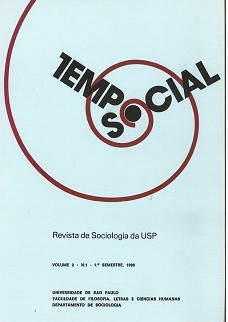Modernity with Sorcery: Candomblé and Umbanda in XXth Century Brasil
DOI:
https://doi.org/10.1590/ts.v2i1.84787Keywords:
Brazil, african religions, "Umbanda", "Candomblé", social changesAbstract
Umbanda has been considered the most genuine Brazilian religion originated from believes brought to Brazil by the African slaves. The article wants to show how the constitution of this religion keeps a strong relationship to certain social changes in Brazil about 1930´s, particularly in Rio de Janeiro. By 1950 Umbanda was spread throughout the country as a religion for all kinds of people whatever their color, class and geographic origins could be. Candomblé, that is the African worship that Umbanda is derived from in sincretism with Catholicism, Indigene faiths of Brazil, and the French Kardecism, still goes on being a religion for some groups of Negroes in the Northwestern, Nonetheless, about 1960 and since, expressive parts of Umbanda adepts started practicing Candomblé, basically in the big and developed cities in the Southeastern. The author trys to understand why this kind of movement has been happening and what particular dimensions of the recent changes in Brazilian society all this is related to.Downloads
Download data is not yet available.
Downloads
Published
1990-07-07
Issue
Section
Articles
License
Copyright (c) 1990 Tempo Social

This work is licensed under a Creative Commons Attribution-NonCommercial 4.0 International License.
How to Cite
Prandi, R. (1990). Modernity with Sorcery: Candomblé and Umbanda in XXth Century Brasil. Tempo Social, 2(1), 49-74. https://doi.org/10.1590/ts.v2i1.84787


